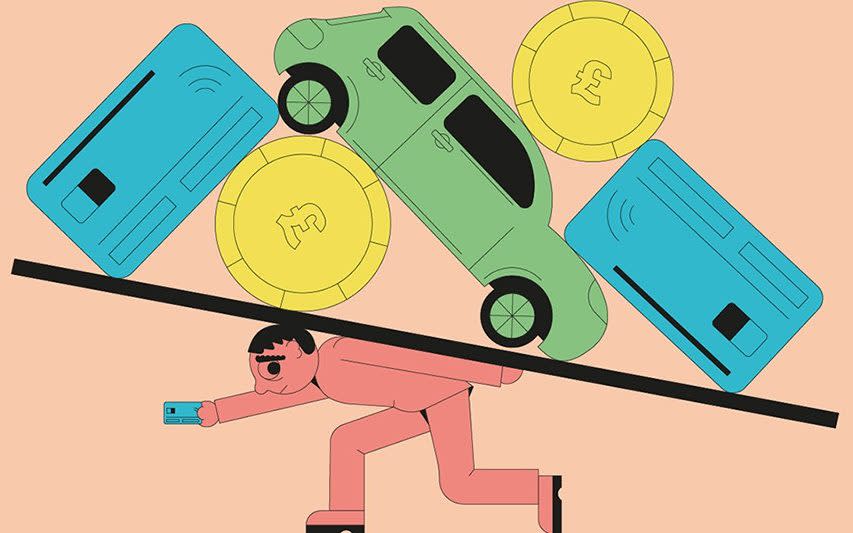A look under the bonnet enough to show Auto Trader has power to steer through latest downturn

The Bank of England’s interest rate rise on Thursday means Bank Rate is now 2.75 percentage points higher than it was six months ago.
While a rapid tightening of monetary policy is set to prompt a lower rate of inflation once time lags have passed, it is equally likely to act as a drag on the UK’s economic performance.
Indeed, the IMF expects the UK economy to contract by 0.6pc this year and in doing so become the worst-performing advanced economy in the world. The Bank of England, meanwhile, anticipates that a recession is on the near-term horizon as a fast-forwarded normalisation of interest rates forces widespread deleveraging among businesses and consumers.
In Questor’s view, correctly predicting the terminal interest rate and accurately quantifying its impact on the economy is a fool’s errand due to the infinite number of known-unknowns. But a fast-paced rise in interest rates is likely to cause difficult operating conditions for some of the equity holdings in our Wealth Preserver portfolio over the coming months.
For example, online vehicle marketplace Auto Trader is likely to feel the pinch because of the widespread use of finance to fund car purchases.
In fact, around 92pc of new cars are bought on finance each year. Since borrowing costs are increasing rapidly, and replacing an existing car is generally considered a discretionary rather than staple purchase by most consumers, it would be unsurprising for the company’s financial performance to come under a degree of pressure in the short run.
Encouragingly, Auto Trader has the financial means to overcome temporarily weak trading conditions. Its latest interim results showed a net debt-to-equity ratio of just 12pc, while net interest payments were covered in excess of 100 times by operating profit during the first half of the year.
And with a dominant market position that meant its share of cross platform minutes was over 75pc, it is very likely to outlast the competition in a weaker economic environment in order to capitalise on a subsequent recovery.
Plus, it has successfully passed rising costs on to customers in an era of high inflation. Its operating profit margin increased by one percentage point year-on-year to 71pc when the impact of acquisitions is excluded.
The company’s continued innovation and launch of new tools and products means it has greater scope to raise prices, while encouraging upselling among existing customers.
Of course, the cost to finance a vehicle purchase is extremely unlikely to return to the lows of recent years. Even if the rate of inflation plummets to the Bank of England’s 2pc target and a recession ensues, history suggests that the 0.1pc interest rate implemented in response to the pandemic is set to be a one-off event.
Therefore, Auto Trader is likely to expand into adjacent product categories to catalyse top and bottom-line growth. Its acquisition of Autorama in June last year, for instance, boosts its exposure to the new vehicle leasing market.
A sound financial position with modest debt means further M&A activity could realistically be undertaken while asset prices are relatively low.
Meanwhile, it is increasingly seeking to combine different parts of the car-buying process, such as part-exchange, reservations and obtaining finance, in a single digital package. This is likely to grow in popularity as consumers become used to buying a wider range of goods and services online.
Since being added to our Wealth Preserver portfolio in July 2021, Auto Trader’s shares have delivered a 0pc return. While this is clearly a disappointing performance in an era where consumer price index (CPI) inflation has reached double-digits, Questor remains upbeat about the company’s potential to generate inflation-beating returns.
Its sound financial position and ability to pass higher costs on to customers mean it is well placed to overcome present economic challenges.
The capacity to make acquisitions and innovate mean it has long-term growth potential despite the scale of change that faces the automotive industry as interest rates normalise.
Therefore, while share price volatility is likely to be elevated in the short run due to an uncertain economic outlook, the company remains a worthwhile long-term holding in our Wealth Preserver portfolio.
Questor says: hold
Ticker: AUTO
Share price at close: 636p
Read the latest Questor column on telegraph.co.uk every Sunday, Tuesday, Wednesday, Thursday and Friday from 6am.
Read Questor’s rules of investment before you follow our tips.

 Yahoo Finance
Yahoo Finance 